Eίμαι μαρξιστής;
Barthes certainly did not look for the polemic with Camus. He had often said he only wrote if commissioned, and after the publication of Writing Degree Zero he was asked to write two reviews of Camus for two magazines of a similar sort, the Bulletin du club du livre français, and the Bulletin du club du meilleur livre. Both were aimed at members of mail-order book clubs. "L'Éntranger, roman solaire?" was published in 1954, and "La Peste: annales d'une épidémie ou roman de la solitude?" ("The Plague: the annals of an epidemic or a novel of isolation?") in 1955. Camus, who read the second article before it was published, replied in the same edition of the magazine and Barthes responded to him in a letter published two months later, in April 1955. The subject of their polemic is interesting since Campus, perhaps unwittingly, pushed Barthes into defining his philosophical position. Barthes had criticized The Plague's lack of "solidarity" and its ethical perspective. Camus had replied with considerable skill to these points. He explained that, firstly, from The Outsider to The Plague there was precisely a movement from individual to collective revolt. Barthes' criticisms were therefore off the mark. Secondly, if one were to accuse him of rejecting history, one should define one's own idea of "history," and if criticizing one's ethics, one should clearly define one's own.
This question obviously goes back to 1952, to the polemic between Camus and Sartre, which had led to the public rupture between them and which had its roots in their differing views of Stalinism and the Soviet Union. In May 1952, in Les Temps modernes, Francis Jeanson had strongly criticized Camus' The Rebel. In August Camus had replied: "I am getting a little tired of being criticized by people who have only ever participated in the march of history from their armchairs." In the same edition Sartre dealt the final blow: "First of all your moral principles became moralism, today they are nothing more than literature, tomorrow perhaps they may become immoral." Camus was therefore exasperated by the way he was regularly put on trial, and at the same time he had developed a certain skill at this kind of debate. The substance of his response to Barthes was, to translate it into the language of contemporary discourse, "What position are you speaking from?" and "Are you for realism in literature?"
.
Barthes, forced into a corner by Camus' skill at polemics and forced to make a choice by this formal demand, chose to take the plunge and declare his commitment (but what else could he do?). He replied that he was speaking from the position of a historical materialist. Doubtlessly such an affirmation, which was partly strategic, was the only one open to him, but naturally it had repercussions. In the Nouvelle NRF, Jean Guérin wondered whether the author of the "little mythologies of the month" was a Marxist and Barthes replied in Lettres nouvelles — in an article provocatively titled "Suis-je marxiste?" ["Am I a Marxist?"] — that such a question had overtones of McCarthyism. But he had already nailed his theoretical colors to the mast. Added to his championship of [Bertolt] Brecht, and his defense of the nouveau roman — which was considered "realist," "objective," and later "object" [objectale] literature — it gave him an image which he might have found it difficult to live up to. Previously he had been perceived as being "on the left" because of the newspapers [Combat, etc.] he had chosen to contribute to: now he had openly declared himself to be so.
Was Barthes a Marxist? According to him he had been a Marxist for a long time: when he left the sanatorium at the end of the war he had deemed himself "a Marxist and a Sartrean"; in Bucharest he had told Rebeyrol that as far as politics went, he could only think in Marxist terms. However, both his Marxist formation and his Sartrean positions can be questioned. First of all, as his articles in Combat show, at the beginning of the 1950s he was part of a group which was considered anti-communist by supporters of Stalinism. Moreover, he was writing for a paper in which, in February 1948, Claude Bourdet had called for the union of left-wing forces, of "non-Stalinist revolutionaries and progressive spirits of all tendencies."
Of course, one could be a Marxist without being a fan of the Communist party, but Barthes' polemics had never situated themselves within the closed sphere of Marxist rhetoric, and never would. Thus, in Writing Degree Zero, when he savagely attacked Roger Garaudy and André Stil, two particularly orthodox pillars of the Communist party, it was not on the grounds of their interpretations of Marxism but their conception of literature: "Of course, we must allow for mediocrity; in the case of Garaudy, it is impressive." He concluded that Stalinist ideology had instilled a holy terror of discussing any formal problems in writing and thus the tendency was to choose a bourgeois form of writing, which was less dangerous than any questioning of it. None of this would have earned him a reputation as an expert in the science of Marxism. Edgar Morin, who had been expelled from the Communist party in 1951, and who did possess a genuine Marxist culture, considered that Barthes' Marxism was the vulgar sort adopted by intellectuals who had perhaps read a few pages of Marx or, more likely, of Sartre.
But in claiming to be a Marxist — as he had once before in another very different context, during his farewell speech at the French Institute in Bucharest — Barthes for once overcame the reserve which characterized all areas of his life. As has been seen, what he hated most was exhibitionism. As he often told his friends, he hated aggression and hysteria, which he regarded as underlying any form of over-assertive militant discourse. While he was fascinated by the Sartrean notion of commitment, he was appalled by the translation of this theory into practice and he avoided meetings, demonstrations, and crowds. Camus had succeeded in making him publicly state his position, which was one of the rare occasions in his life when he was forced to drop his intellectual reserve. [Roland Barthes: A Biography, pgs. 118-120]
___________
Louis-Jean Calvet
Roland Barthes: A
Biography (1990)


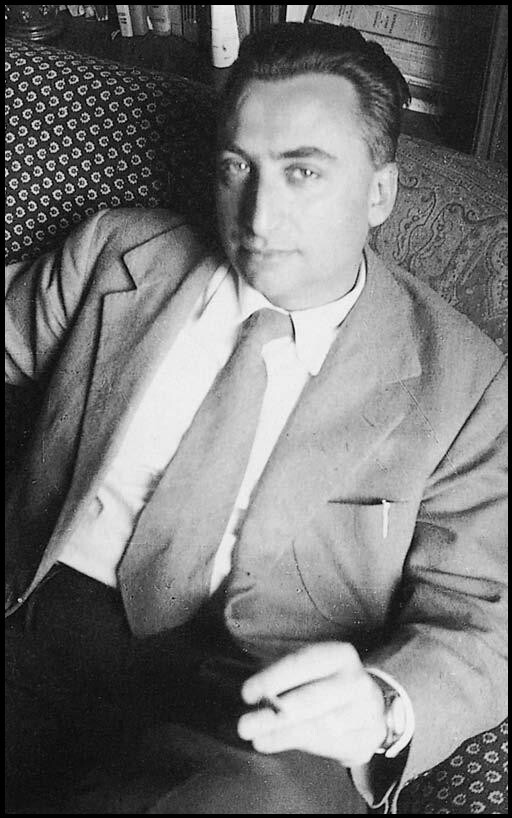








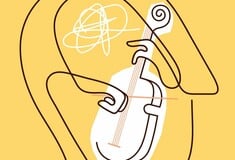
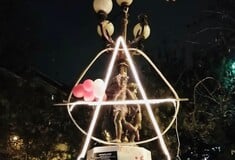

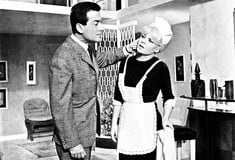
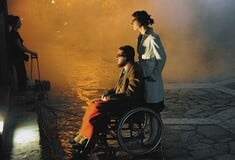




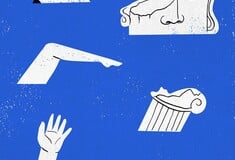





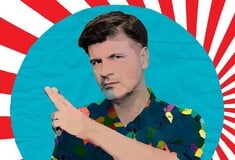


σχόλια